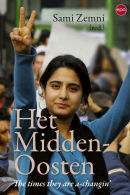(14-05-2013) USAID: Missionaries of US Imperialism
(14-05-2013) Iraq's invisible refugee crisis
(29-05-2013) Interview with Sheikh Mohammed Bashar Al-Faidhi, spokesperson of the Association of Muslim ...
(27-05-2013) Why Maliki Must Go
(17-05-2013) Sectarianism in Iraq stoked by Syrian war
(01-06-2013) OUR OPTION IS OUR STRENGTH FRIDAY
(29-05-2013) Interview with Sheikh Mohammed Bashar Al-Faidhi, spokesperson of the Association of Muslim ...
(20-04-2013) Diyala’s Blood is Our Blood - Friday 19 April 2025
(27-05-2013) Why Maliki Must Go
(03-05-2013) Al-Maliki is directing Iraq to war once again
(25-04-2013) Iraqi forces kill 43 Iraqis and destroy six mosques
(23-04-2013) Hawija: Chronicle of an Announced Mass Murder
(21-04-2013) Boston on the Tigris
(01-05-2013) Ataque inminente a Ramadi
(01-05-2013) Hawija investigation results revealed
(14-05-2013) Al-Maliki is directing Iraq to war once again
(14-05-2013) Iraq's invisible refugee crisis
The BRussells Tribunal is independent and wants to remain independent.
The BRussells Tribunal is an activist think tank and peace organisation with a special focus on Iraq. Read more...



 The times they are a-changin' is het eerste grondige Nederlandstalig overzicht dat voorbij oppervlakkigheden en algemeenheden wandelt, en ook nog eens de hele regio bestrijkt, van Egypte en Tunesië tot Marokko, Libië, Syrië, Libanon, Palestina, Jemen, Jordanië, Irak, Bahrein en Israël. Daar bestaat een woord voor: een standaardwerk.
The times they are a-changin' is het eerste grondige Nederlandstalig overzicht dat voorbij oppervlakkigheden en algemeenheden wandelt, en ook nog eens de hele regio bestrijkt, van Egypte en Tunesië tot Marokko, Libië, Syrië, Libanon, Palestina, Jemen, Jordanië, Irak, Bahrein en Israël. Daar bestaat een woord voor: een standaardwerk.